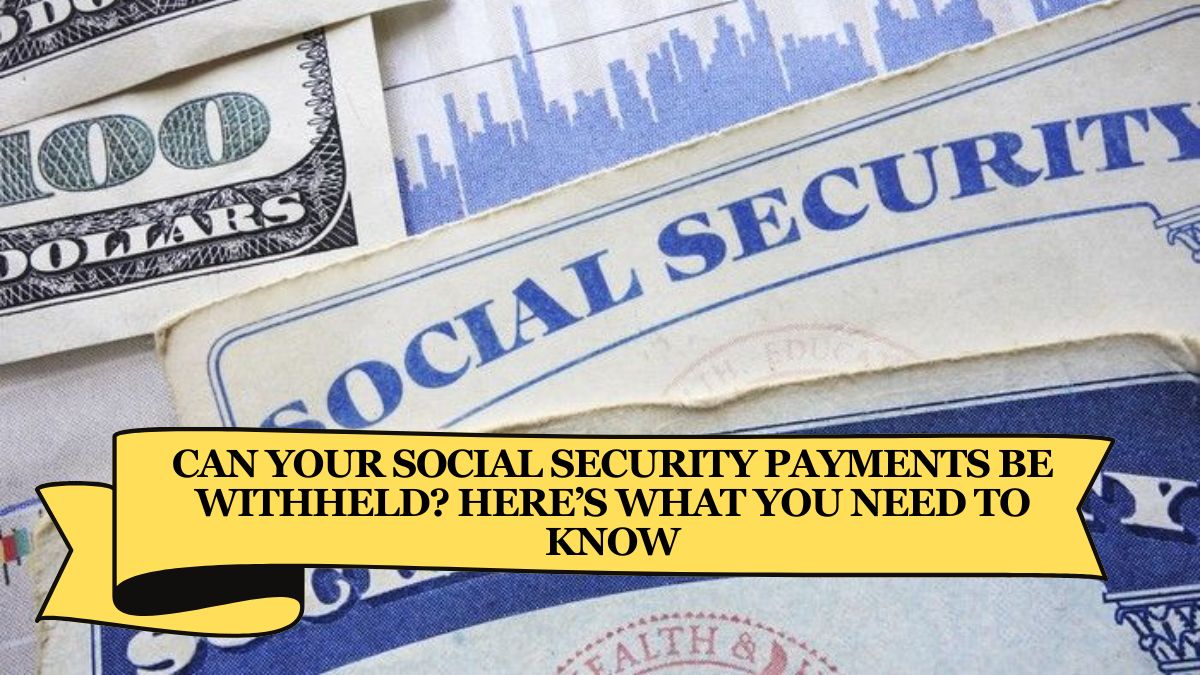Social Security is a critical financial lifeline for many people, especially retirees, and individuals with disabilities. However, there is a common concern among beneficiaries: can Social Security payments be withheld or garnished? It’s important to understand the situations in which Social Security benefits may be affected. In this article, we’ll explain how Social Security payments can be garnished, the rules around it, and how you can protect yourself from losing your benefits.
What is Garnishment of Social Security Payments?
Garnishment refers to the legal process where a portion of your income, in this case, Social Security benefits, is taken to pay off certain debts. While it’s rare for Social Security payments to be withheld, it’s still important to understand when this could happen. Social Security benefits are usually protected from most kinds of debts. However, there are specific cases where they can be garnished.
Who Can Garnish Social Security Payments?
Several government agencies have the legal power to garnish Social Security benefits. Let’s explore who has the right to take these payments.
The Social Security Administration (SSA)
Under normal circumstances, the SSA does not garnish Social Security benefits. However, there are exceptions. The SSA can be involved in garnishment if you owe certain types of debts, such as child support or alimony. According to Section 459 of the Social Security Act (42 USC 659), if there is a court order for garnishment, the SSA may be required to take part in it. This typically happens when a person owes money for child support or spousal support.
The Internal Revenue Service (IRS)
The IRS can garnish Social Security benefits to settle unpaid federal tax debts. This is allowed under the Taxpayer Relief Act of 1997, which gives the IRS the power to take up to 15% of Social Security payments to cover owed taxes. This garnishment continues until the debt is fully paid off.
If you are facing an IRS garnishment, you can reach out to the IRS at 1-800-829-7650 for more information about your rights and how to appeal the garnishment. If you feel that your garnishment is unfair, you may want to consult with a tax professional or seek legal advice.
The Department of the Treasury
The Department of the Treasury can also garnish Social Security payments. This is allowed under the Debt Collection Improvement Act of 1996, which gives the government authority to take Social Security benefits for non-tax-related debts. This means if you owe money to a federal agency, they may use Social Security benefits to recover those funds.
For issues related to this type of garnishment, you can contact the Department of the Treasury at 1-800-304-3107. They can provide more details about the process and answer any questions you may have about how your benefits are being garnished.
What Types of Debts Can Lead to Garnishment?
Social Security benefits can only be garnished in certain situations, which usually involve legal obligations. Below are some of the types of debts that could result in garnishment:
Child Support and Alimony Payments
If a court orders that you pay child support or alimony, and you fail to do so, your Social Security benefits may be garnished to fulfill these obligations. The SSA will comply with these court orders and deduct the required amount from your benefits.
Federal Tax Debts
If you owe federal taxes and haven’t made payment arrangements, the IRS can garnish your Social Security benefits. They have the right to withhold up to 15% of your Social Security income to pay off the tax debt.
Federal Agency Debts
In cases where you owe money to a federal agency, Social Security payments may be garnished to recover that debt. This could include any amount you owe to the government for non-tax reasons, such as student loans or overpayments from federal programs.
How Can You Protect Yourself From Garnishment?
It’s essential to know your rights and take proactive steps to avoid the garnishment of your Social Security payments.
Keep Track of Your Financial Obligations
Make sure you’re aware of any debts you owe, particularly child support, taxes, and loans from federal agencies. Stay on top of these payments to avoid having your Social Security benefits garnished.
Work Out Payment Plans
If you have debt and are worried about garnishment, you should contact the relevant agency (like the IRS or Department of the Treasury) and ask about setting up a payment plan. Many agencies are willing to work with individuals to avoid taking their Social Security payments.
Seek Legal Help
If you believe your Social Security benefits are being wrongly garnished, it’s important to seek legal advice. A lawyer can help you understand your rights and can even help you challenge a garnishment if it was made in error.
What Should You Do If Your Payments Are Garnished?
If your Social Security payments are garnished, the first thing you should do is determine the reason for the garnishment. You can contact the relevant agency (such as the IRS or SSA) to find out why it’s happening. If you believe the garnishment is incorrect or unfair, you have the right to challenge it.
Many agencies allow you to appeal the garnishment, and they may even be able to reduce the amount deducted from your Social Security benefits if you can prove hardship. Seek professional advice or legal assistance if you need help with the process
Social Security benefits are an essential source of income for many individuals, but in some cases, they can be garnished to pay off debts. Whether it’s due to child support, unpaid taxes, or other federal debts, understanding when and why garnishment can occur is crucial for protecting your financial security. By staying informed, keeping track of your financial obligations, and seeking legal advice when needed, you can help ensure that your Social Security payments aren’t unfairly withheld.
You Must Visit: California State Online

